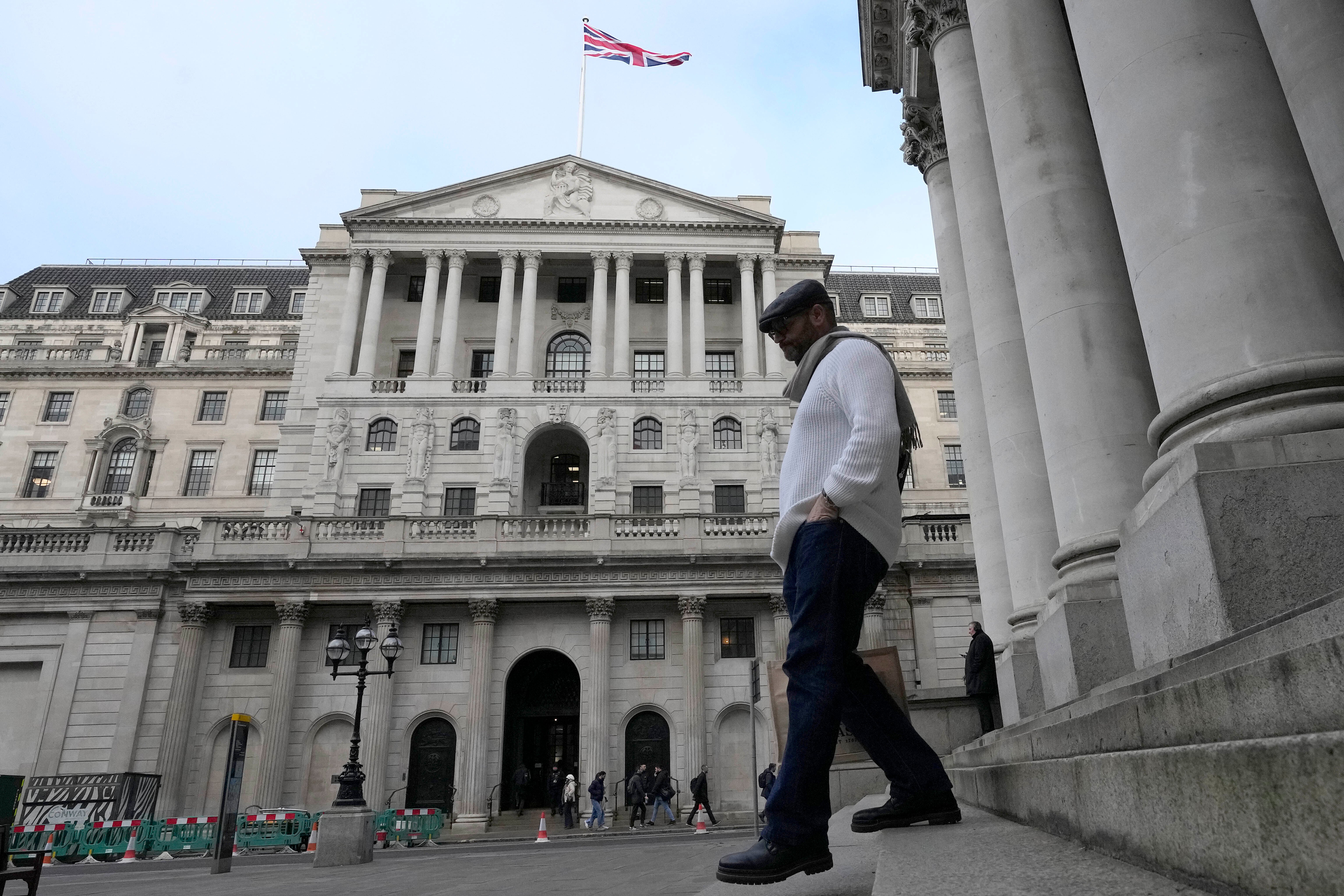UK inflation falls again, raising hopes prices will plunge
Britain’s inflation rate fell for a third consecutive month in January, boosting optimism that the cost-of-living crisis has peaked and prices will fall sharply later this year

Your support helps us to tell the story
From reproductive rights to climate change to Big Tech, The Independent is on the ground when the story is developing. Whether it's investigating the financials of Elon Musk's pro-Trump PAC or producing our latest documentary, 'The A Word', which shines a light on the American women fighting for reproductive rights, we know how important it is to parse out the facts from the messaging.
At such a critical moment in US history, we need reporters on the ground. Your donation allows us to keep sending journalists to speak to both sides of the story.
The Independent is trusted by Americans across the entire political spectrum. And unlike many other quality news outlets, we choose not to lock Americans out of our reporting and analysis with paywalls. We believe quality journalism should be available to everyone, paid for by those who can afford it.
Your support makes all the difference.Britain’s inflation rate fell for a third consecutive month in January, boosting optimism that the cost-of-living crisis has peaked and prices will fall sharply later this year.
Inflation eased to 10.1% in the 12 months through January from 10.5% a month earlier, the Office for National Statistics said Wednesday. The consumer prices index peaked at 11.1% in October.
The Bank of England forecasts prices will fall rapidly in the second half of this year as energy costs begin to moderate and price increases triggered by Russia’s invasion of Ukraine drop out of inflation calculations.
But the figures offer no immediate relief to consumers squeezed by inflation that remains at levels last seen in the early 1980s. The country has been gripped by a wave of strikes in recent weeks as public-sector workers ranging from train drivers to teachers, nurses to paramedics demand higher wages.
“Another fall in inflation over January suggests that the tide is turning on price pressures,” said Alpesh Paleja, lead economist for the Confederation of British Industry. “But with inflation and pipeline cost pressures set to remain high this year, households and businesses are likely to feel the pain for a while yet.”
While declines in the cost of transportation, clothing and restaurant meals helped push inflation lower last month, consumers are still struggling with rising food and energy prices.
Food prices rose 16.8% in the year through January, easing slightly from the 16.9% figure reported a month earlier. Housing costs, which include gas and electricity, increased 11.8%.
Britain's price spikes have been outpacing some other major economies. The U.S. saw annual inflation ease to 6.4% in January, while Europe's slowed to 8.5%.
Those rates are still high, and central banks from the U.S. Federal Reserve to Bank of England have been raising interest rates to cool off inflation.